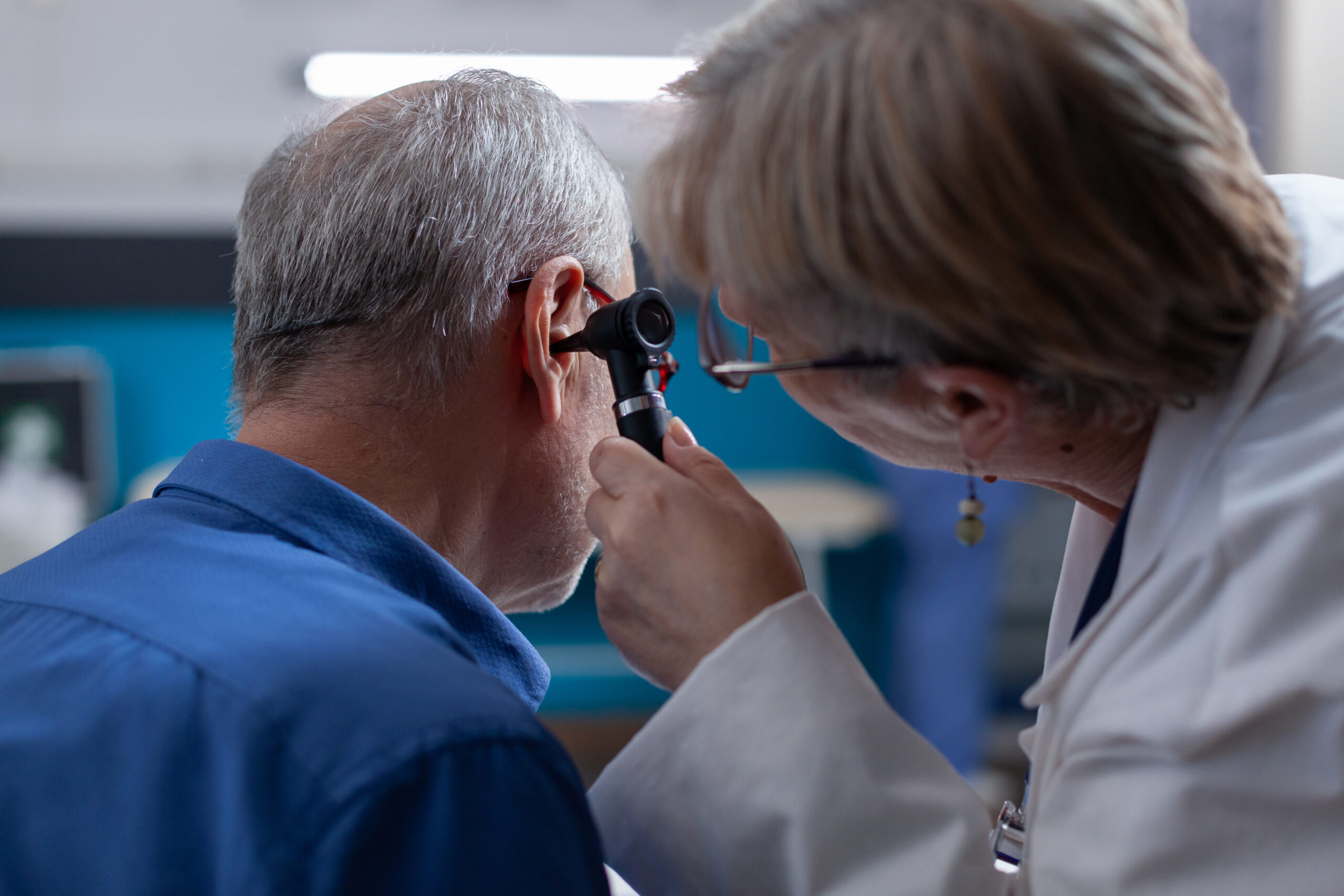Table of Contents
Cochlear implants have helped thousands of people around the world regain access to sound and communication. While they are generally safe and effective, like any surgical procedure, there are risks involved, especially when it comes to post-surgical infections. If you or a loved one has undergone cochlear implant surgery, it’s essential to understand the signs of an infection, potential complications, and how to treat it promptly.
In this comprehensive guide, we’ll explore everything you need to know about cochlear implant infection treatment, including causes, symptoms, risk factors, and how to treat implant infection effectively. We’ll also cover tips for preventing infections and managing other cochlear surgery complications.
What Is a Cochlear Implant?
A cochlear implant is an advanced medical device designed to provide a sense of sound to individuals with severe to profound hearing loss. It bypasses damaged parts of the inner ear and stimulates the auditory nerve directly. The device consists of two parts:
- External component: Worn behind the ear, it includes a microphone, speech processor, and transmitter.
- Internal component: Surgically implanted under the skin and inside the cochlea.
While cochlear implants are highly successful for many, post-surgical care is crucial to ensure a smooth recovery, especially when it comes to avoiding infection after implantation.
How Common Are Cochlear Implant Infections?
Cochlear implant infections are relatively rare but serious when they do occur. Studies estimate that the infection rate ranges from 1% to 6% depending on the surgical technique, post-op care, and individual health factors. Infections can happen:
- Immediately after surgery (within the first few weeks)
- Several months later
- Even years after implantation, in rare cases
The good news is that most infections are treatable when detected early. But left untreated, they can lead to cochlear surgery complications such as device failure, bone erosion, or even the need to remove the implant.
What Causes Infection After Implant?
Several factors can lead to infection after implant surgery, including:
- Surgical Site Contamination: Bacteria introduced during surgery, even in a sterile environment, can result in localized infection.
- Poor Wound Healing: People with diabetes, weakened immune systems, or other chronic conditions may experience delayed healing, increasing the risk of infection.
- External Trauma: Bumps, falls, or pressure on the implant site can disrupt healing and introduce bacteria.
- Improper Aftercare: Not following post-op care instructions—like keeping the wound clean and dry—can lead to infection.
- Middle Ear Infections: For children, especially, untreated ear infections can spread to the area around the implant.
Signs and Symptoms of a Cochlear Implant Infection
It’s vital to recognize the early warning signs of infection. Common symptoms include:
- Redness and swelling around the implant site
- Pain or tenderness
- Warmth around the surgical area
- Discharge or pus from the wound
- Fever or chills
- Hearing changes or discomfort with the device
- Headache or dizziness (in severe cases)
If you notice any of these signs, seek medical attention right away. The sooner treatment begins, the better the outcome.
How to Treat Implant Infection: Step-by-Step
Treatment for a cochlear implant infection varies based on the severity and timing of the infection. Here’s an overview of how medical professionals typically approach it:
Step 1: Clinical Examination and Diagnosis
Doctors will examine the area around the implant and may order the following:
- Doctors may order blood work, wound cultures, or imaging like a CT scan. ABR and ASSR tests can help assess hearing changes.
- Swabs or cultures of any discharge to identify the bacteria
- Imaging (like a CT scan) to determine if the infection has spread
Step 2: Antibiotic Therapy
For mild infections, doctors usually prescribe a course of oral or intravenous antibiotics. The type of antibiotic depends on the bacteria identified. This step is often effective in managing early-stage infections.
Step 3: Wound Care and Drainage
If pus or fluid has accumulated under the skin, minor surgical drainage may be necessary. Keeping the area clean and dry is essential during recovery.
Step 4: Hospitalization (in Severe Cases)
For more serious infections—especially those involving the bone (mastoiditis) or implant device—hospitalization may be required for intravenous antibiotics and close monitoring.
Step 5: Surgical Revision or Device Removal
If unresponsive to antibiotics, the cochlear implant might need to be temporarily removed.
Cochlear Surgery Complications Beyond Infection
While infection is one of the more serious concerns, other cochlear surgery complications can also occur:
- Facial nerve injury: Rare but possible due to the proximity of the facial nerve.
- Balance issues or vertigo: Temporary dizziness may occur after surgery.
- Tinnitus: Ringing in the ears may persist or appear after implantation.
- Device malfunction: Issues with the implant hardware may occur and sometimes require hearing aid repairs to restore proper function.
- Cerebrospinal fluid leak: A rare but serious condition that may require further surgery.
Prompt recognition and treatment of these complications are crucial for long-term implant success.
Long-Term Impact of Untreated Implant Infection
If infection after implant surgery is not treated quickly and effectively, it can lead to several long-term problems:
- Loss of implant function
- Need for device removal
- Permanent hearing loss
- Spread of infection to the skull or brain (very rare)
Early diagnosis and proper treatment significantly reduce the chances of these outcomes.
Prevention Tips: How to Reduce the Risk of Implant Infection
Preventing infection is always better than treating one. Here are proven steps to minimize risk after cochlear implant surgery:
- Follow Post-Surgical Instructions: Keep the wound clean and dry. Avoid touching the area unnecessarily.
- Avoid Water Exposure: Do not submerge your head in water (e.g., swimming pools or bathtubs) until your doctor gives the green light.
- Monitor for Early Signs: Report redness, swelling, or fever to your doctor as soon as possible.
- Take All Prescribed Medications: If your surgeon prescribes antibiotics post-surgery, take the full course even if you feel fine.
- Keep Regular Follow-Up Appointments: Your audiologist or ENT specialist can detect early issues during routine check-ups.
- Avoid Physical Trauma: Be careful not to bump or injure the area around your implant, especially in the first few weeks post-surgery.
If you’ve received a cochlear implant, ongoing pure tone audiometry can also help monitor hearing performance after surgery.
Pediatric Cochlear Implant Infections
Children are more prone to ear infections, which can sometimes spread to the cochlear implant site. Parents should watch for signs such as:
- Tugging at the ear
- Crying or irritability
- Fever
- Drainage from the ear
Routine pediatric evaluations and tympanometry can help detect underlying issues.
When to See a Specialist
You should seek medical attention if:
- You notice signs of infection
- You experience changes in hearing performance
- The implant site feels painful or swollen
- You develop a fever post-surgery
Don’t wait. The sooner you get checked, the easier the treatment and the better the outcome.
Conclusion
While cochlear implants have transformed the lives of many, it’s important to be aware of the potential risks, like infection. Fortunately, with early detection and proper treatment, most infections can be resolved without long-term damage. Whether you’re learning about how to treat implant infection or managing an active case, being proactive and informed is your best defence.
If you experience any signs of infection after the implant, don’t wait. Reach out to a trusted provider like The Hearing Centre Singapore to ensure safe and effective care. The sooner you act, the better your chance of a full recovery—and a lifetime of better hearing.
Frequently Asked Questions
Look for swelling, redness, discharge, pain, or fever. Any sudden hearing changes should also prompt a medical check-up.
Yes, in most mild to moderate cases, antibiotics and wound care can treat the infection without removing the implant.
Depending on severity, treatment can take from a few days to several weeks. Hospitalization may be needed in serious cases.
Yes. Following all post-op care instructions, keeping the site clean, and attending follow-up visits are the best ways to prevent infection.
You can visit The Hearing Centre for comprehensive cochlear implant care and infection management.
It checks how well you can hear sounds at different pitches, from low bass to high treble tones.
Yes, many online tools let you check your hearing using test tones, but results are general and not as precise as a clinic test.
It may signal high-frequency hearing loss, common with age or noise exposure. Speech may sound muffled or unclear.
No, they are pure tones at specific frequencies used to detect hearing sensitivity more accurately.
It’s recommended to test your hearing once a year, especially if you’re over 40, work in noisy environments, or notice changes in how you hear sounds.

Evlin is passionate about helping people with hearing loss. With years of experience in audiology, she has diagnosed and treated a wide range of hearing conditions across all age groups. She is accredited to conduct comprehensive hearing assessments and provide treatments for patients from newborns to the elderly. Committed to personalized care, she strives to empower patients to fully engage in life with better hearing.
Designation: Clinical Audiologist
Qualification: Bachelor of Health Science (Honours) (Audiology), University of Science Malaysia
Membership: .Society of Audiology Professionals in Singapore (SAPS)
